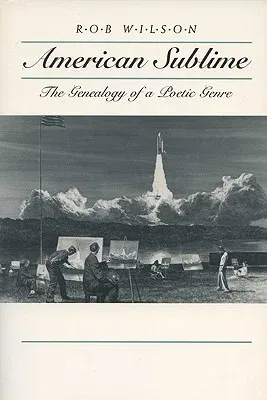Tracing ideas of the sublime in American literature from Puritan
writings to the postmodern epoch, Rob Wilson demonstrates that the North
American landscape has been the ground for political as well as
aesthetic transport. He takes a distinctly historical approach and
explores the ways in which experiences of the American landscape instill
desire for other kinds of vastness: self-expansion, national expansion,
and American political power. As Wallace Stevens put it, the American
will takes "dominion everywhere."
Wilson sets the stage for his "genealogy" with a discussion of the
classical notion of the sublime (taken primarily from Longinus) and the
ways that notion was pragmatically transformed by its American setting
and appropriated by American poets. He follows this transformation in
successive chapters on the Puritans (Bradstreet) through the Naturalists
(Livingston and Bryant), from the epitome of the American sublime
(Whitman) to the greatest of the modernists (Stevens) and its
present-day incarnations (Ashbery and others). Writing today under the
sign of Hiroshima, contemporary writers must struggle with the concept
of the sublime within a context of spiralling technologies and nuclear
force that calls into question the long-standing American sacralization
of power.
Throughout American Sublime, Wilson engages in an original theoretical
inquiry into "the sublime" as term, topic, complex, and controversial
idea in literary and critical history. Furthermore, he undertakes his
historical study from an avowedly postmodern perspective, one that draws
on and extends the work of Jameson, Lyotard, Foucault, Lentricchia,
Harold Bloom, and others.

